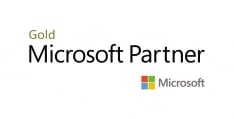Kansas City is the largest city in the state of Missouri. It has an estimated population of 460,000 people which makes it the 37th most populated city in the United States. It was founded in the 1830s as a Missouri River port at its confluence with the Kansas River coming in from the west. Education in the USA is provided by both public and private schools, and is mandatory until the age of 16. Pupils conducting their schooling within the USA start off at preschool, followed by elementary school, then middle school, before finishing at high school. At age 18, US citizens are able to engage in higher education. Higher education in the USA normally comes in the form of a college, undergraduate school, or a community college – that latter of which doesn’t normally cost anything to attend. Candidates participating in a course at a college will gain credits towards a bachelor’s degree, whilst candidates participating a course at a community college will be earning credits in order to achieve an associate’s degree. There are 16 school districts in Kansas City which includes 10 public school districts. There is also a number of private schools, Catholic schools and Magnet Schools. The Catholic schools are governed by the Diocese of Kansas City. The following are some examples of the public school districts: Kansas City, MO School District, North Kansas City School District, Center School District, Hickman Mills C-1 School District and Grandview C-4 School District. There are a number of colleges and universities in the Kansas City area such as the University of Kansas, University of Missouri, Rockhurst University and Kansas City University of Medicine and Biosciences. The University of Kansas is the highest ranked Kansas University in the university world rankings. It is ranked at number 271st in the world. At The Knowledge Academy we offer over 50,000 classroom based training courses in the United States, including popular locations such as Kansas City.
Free Wi-Fi
To make sure you’re always connected we offer completely free and easy to access wi-fi.





































 Back to course information
Back to course information




 If you wish to make any changes to your course, please
If you wish to make any changes to your course, please

